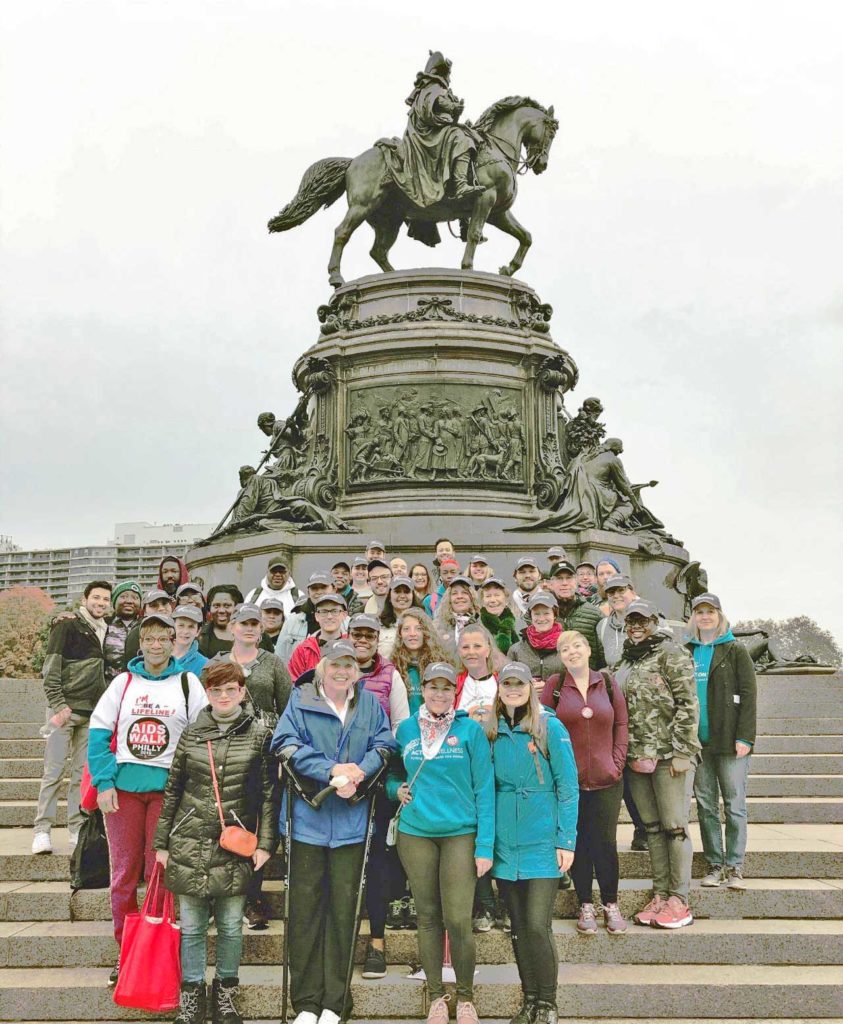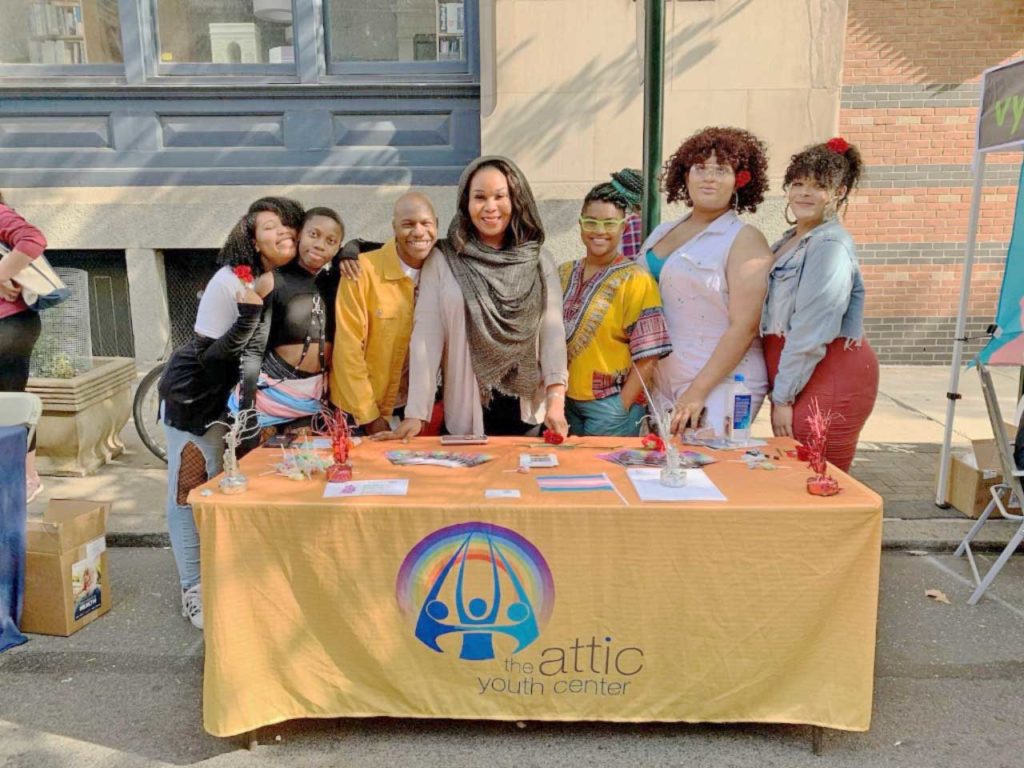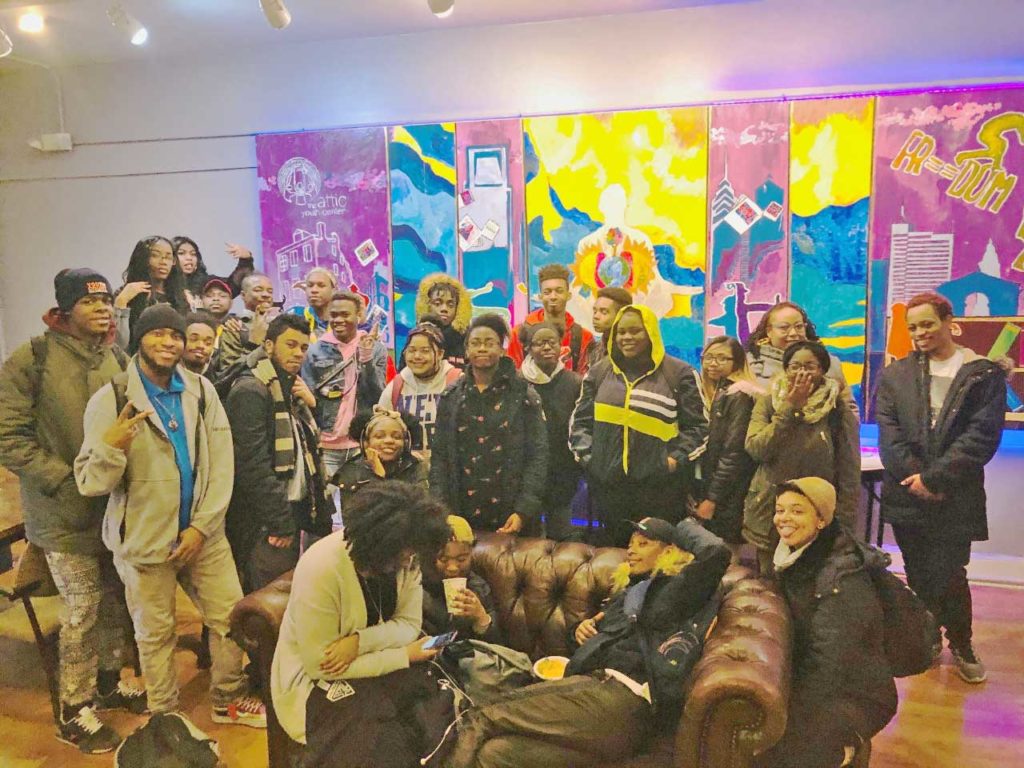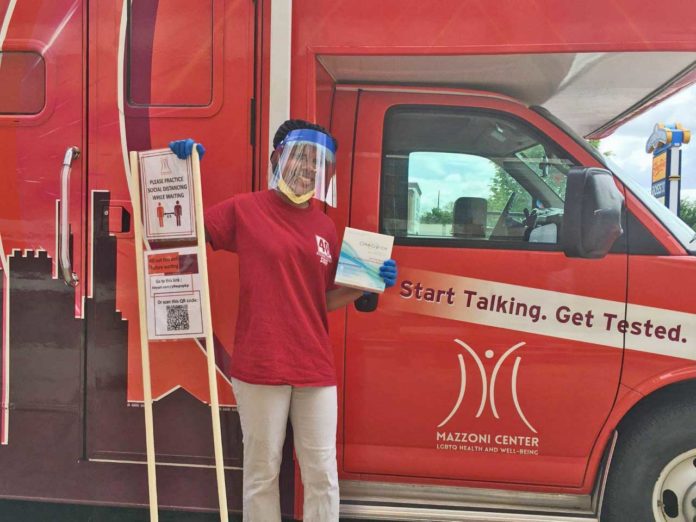According to data from the Centers for Disease Control, at least 105-thousand healthcare personnel have been infected with COVID-19 and over 500 have died, including doctors, nurses, EMTs, lab technicians, pharmacists and other medical employees. But many in the field, including those in Philly’s LGBTQ healthcare organizations, take their call to service seriously and are persevering through the pandemic. This week we spoke with some of our local healthcare organizations and individuals who have been deemed essential, not only to their patients, but to the entire community they support.
Maria Lozada, a treatment adherence specialist with Bebashi — Transition to Hope, has committed herself to visiting homebound HIV patients every day. “She has never missed a day of work during the pandemic,” Bebashi communication specialist Rhonda Lipschutz said in an email. “On one outing while Maria was making deliveries, the van was hit and totaled by a drunk driver. Maria refused to take the following day off and was in the office the next morning arranging for other transportation to complete her daily visits.”
Each morning Lozada arrives at work by seven to arrange food packages and HIV meds. Other life-saving drugs are also dispensed, including diabetes and hypertension treatments. She then makes deliveries across the city. At each of her stops she then spends time speaking to patients to see how they are holding up.
Lozada has worked at Bebashi — which began serving the community in 1985 — for the past year and a half. The organization provides critical services to clients, including HIV/STI testing, primary medical care, a food pantry, access to medications, and general support.
“I love my work and I love my clients,” Lozada said. “Many of them are alone and they need my support. It’s not just about the food and medication — they need someone to talk to during these scary times.”
With over 7,000 patients in their general health center and roughly 700 patients who rely on them for behavioral health services, the Mazzoni Center is perhaps the best-known LGBTQ-focused health organization in the Delaware Valley. Based upon the sheer numbers associated with the organization, keeping staff and patients safe was their top priority.
“All of our behavioral health and most medical services are being delivered through telemedicine,” Communications Director Larry Benjamin said. “To address the barriers to patients without internet access, and who are thus unable to take advantage of telemedicine, we partnered with TMobile and will be providing 200 smart phones to patients who need them to access services.”
Although they were founded in 1979 as a healthcare organization specializing in the queer commiunity, by 1981 they were primarily dealing with the early AIDS crisis. Testing for STIs and HIV has always been a major part of their focus. But under COVID-19 shutdowns, the Philadelphia Department of Health has suspended community-based STI testing.
“Our Washington West Project remains closed,” Benjamin shared, “but we have been making free at home HIV test kits and counseling available through our community call center and our mobile testing unit which visits sites in high risk areas in Philadelphia on Mondays and Fridays. In addition, through our health center’s MazzoniGo program, we provide drive thru/walk up lab services such as immunizations, shots that can be given in the arm, oral swabs, swab drop off, finger stick tests, and COVID-19 testing for Mazzoni Center patients.”
In terms of funding, the Mazzoni Center has seen an increase in donations from private individuals. Organizations such as PHL-COVID-19 Fund, the Philadelphia Foundation, Gilead CARES Grantee Fund, and other groups have also pledged financial support during the pandemic.

Like Bebashi and Mazzoni, other health organizations have been forced to find new ways to communicate and interact with clients, including Action Wellness (formerly ActionAIDS).
“Since the end of March, Action Wellness staff began working with a rotating limited staff in each office,” Deputy Executive Director Beth Hagan told PGN. “Direct service staff have provided ‘wellness checks’ with all clients via telephone and/or mail. These Wellness calls include ensuring that clients have accurate information about COVID-19, assessing any barriers that clients may have in accessing needed services such as food, medication and medical care, as well as providing financial and emotional support during this stressful and isolating time.”
In addition, Hagan said they have reconfigured their offices to optimize social distances and are providing masks and temperature checks to all staff and visitors.
Action Wellness has conducted nearly 14,000 wellness checks from mid-March through the end of June. They also provided nearly 10,000 referrals to patients, linked 20 clients to stable housing, and through their RE-LINK program have connected four formerly incarcerated youth to housing grants which provided them rental assistance.

Another organization that deals with youth, the Attic Youth Center, has been addressing the needs of LGBTQ young people since 1993. They are known for their popular youth group events but they also provide therapy and counseling to some 600 young people and their families. Of course, the very nature of being a kid during the summer is one of socializing, hanging out with friends, and for many newly out LGBTQ-teens, dating. Summer must certainly feel different for youth this year.
“Young people, like all of us, crave connection, especially right now when there is so much uncertainty and pain in the world,” Shawnese Givens, the Attic’s interim executive director shared. “We always strive to provide the most relevant programming, and during the pandemic that has meant being particularly responsive to the acute feelings of isolation and anxiety that can be exacerbated when you don’t have access to your typical social supports.”

To maintain a sense of community among those they serve, the Attic Youth Center has kept everybody together through virtual movie nights, support groups, and other virtual spaces to address the needs of young people. In the beginning of July, the Attic was able to reopen on a modified schedule to provide services that they have been unable to provide virtually, including access to food and personal hygiene products.
“We will continue to provide virtual services as well as these essential in-person offerings as Philadelphia fights the pandemic,” Givens added. “And we will continue to find innovative ways to support our young people while doing our part to ensure their health and safety.”
Next week, we’ll speak with some of our local performers about how they have fared during the shut down.
